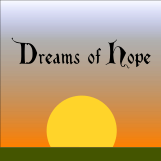Dwarves
Dwarves (cultural name: Tumnii) descend from the Lesser Titans who served Creation/Order. Like the earth, they are solid and not easily moved; their tempers are volcanic when finally roused. Dwarves have two major ethnic divisions: hill dwarves and mountain dwarves. All dwarves are overwhelmingly born as fraternal twins--one male and one female. Their society (of both races) has strongly-assigned gender roles, but neither is dominant. Dwarves are considered adult at age 25 and generally live until they are about 120.
Male dwarves tend to deal with the "hard" things and women with the "soft" matters; men deal with crafting and mining while women farm or trade. Women are the judges and leaders. Ask a male dwarf to take charge and he'll almost always defer to his wife. Stubbornness is taught from a young age.
Hill dwarven and mountain dwarven are dialects of the same language. All hill dwarves and those mountain dwarves that deal with other races speak common.
Hill Dwarves
Hill dwarves have ancestors that lived above ground and were craftsmen and traders. They tend to be taller than mountain dwarves (averaging 4'8" with 5'0" not being too uncommon) but more wiry and slender than mountain dwarves. Sexual dimorphism (while muted compared to other races) is more pronounced in hill dwarves than in mountain dwarves. This mainly shows up in facial features and body build. Height, weight, and strength are only minimally different. Female hill dwarves tend to have sharper features and straighter, longer hair than males. Both have elaborate beards.
Hill dwarves are less culturally conservative than mountain dwarves, but still very conservative compared to other races (humans, especially). Hill dwarfs are not considered adult until they are married, with only a few (adventurers, basically) exceptions. Marriages are for life and divorce is strongly stigmatized. Remarriage happens after the death of a spouse, but is not very common. Widows and widowers gain the appellation "sigan," meaning "broken."
Mountain Dwarves
Mountain dwarves are the arch-conservatives to the hill dwarves' moderation. Lack of ready access to rich foods and ample spaces have stunted the mountain dwarves in height (averaging 4'4"); the constant workload in the mines has increased their strength. There are very few external differences between mountain dwarf sexes (unless you get them naked).
Except for adventurers, all mountain dwarves that are found outside of their clans are married. The two act as a single unit. Marriages are monogamous and for life. Remarriage is extremely rare and strongly stigmatized. Adultery is social suicide (and often considered criminal). Widows and widowers tend to volunteer for the most hazardous duties and often become death-seekers (not suicidal per se, just unconcerned for their own lives). Children are raised by the clan as a whole.
Social stigmas are extremely powerful for mountain dwarves. This leads to clan-level conformity. From the outside, it often appears as if a clan of mountain dwarves is a single organism that shares a mind. Disagreements (while they exist) are never shared outside the clan. The greatest taboo is to knowingly write falsehoods. This taboo is enforced by the death penalty.
Naming
Dwarven names (especially those from the Council Lands) are unisex and of the form <Given> <Clan>.
Example given names include:
Adilet, Aibek, Anara, Aybek, Bermet, Cholpon, Gulnara, Jyrgal, Ruslan, Sukhrab, Taalay, Zhyrgal.
Clan names include:
Chingis, Batbayar, Khulan, Gerel, Naranbaatar, Narangerel, Sarnai, Tsetseg
For clan structure in the Council Lands, see Dwarven Clans.
